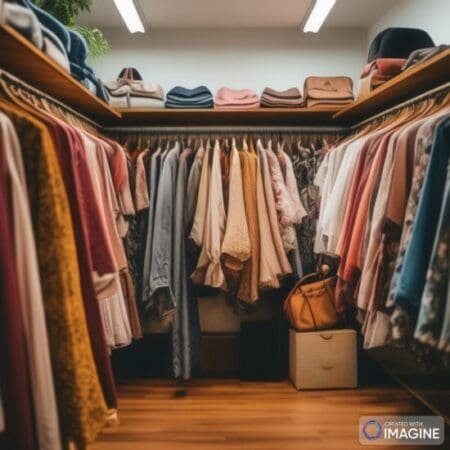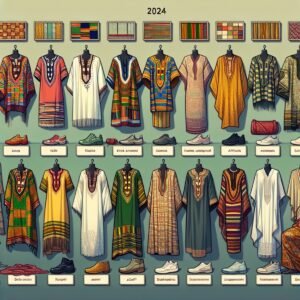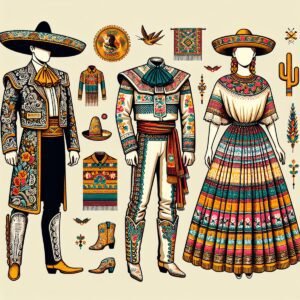
Introduction to Second-Hand Clothing Market in Singapore
Singapore’s second-hand clothing market has seen a significant rise in popularity in recent years as more people recognize the value of pre-loved fashion. The market offers a sustainable and budget-friendly alternative to buying brand new clothes. With a strong focus on reducing waste and promoting a circular economy, second-hand clothing platforms have become go-to destinations for both sellers and buyers in Singapore. Selling Second-Hand Clothes in Singapore
When exploring the second-hand clothing market in Singapore, it becomes evident that there is a diverse range of platforms catering to different needs. From online marketplaces to consignment stores and swap events, the options are plentiful. Sellers can easily declutter their closets and make some extra cash by selling their gently used clothes, while buyers can discover unique pieces at a fraction of the original price.
The appeal of the second-hand clothing market in Singapore lies not only in its affordability but also in its sustainability aspect. By extending the lifecycle of clothing items, individuals contribute to reducing the environmental impact of fast fashion. Additionally, the market allows for the exploration of personal style through one-of-a-kind finds and vintage treasures.
As the second-hand clothing market continues to grow in Singapore, it represents a shift towards more conscious consumerism. With an emphasis on quality, style, and eco-friendliness, sellers and buyers alike can participate in a fashion revolution that prioritizes ethics and sustainability.
Online Platforms for Selling Second-Hand Clothes

- Carousell: Carousell is a popular choice for selling second-hand clothes in Singapore. Users can easily create listings with photos and descriptions, reaching a large audience of potential buyers on the platform. The user-friendly interface and secure payment options make it a convenient option for selling preloved items.
- Depop: Depop is another online platform that has gained popularity for selling second-hand clothes. It caters to a younger demographic and focuses on fashion-forward items. Sellers can showcase their unique style and reach a global audience through the app.
- Facebook Marketplace: Facebook Marketplace provides a convenient way to sell second-hand clothes to a local audience. Sellers can create listings within their community and easily connect with buyers. The platform is ideal for selling clothes in bulk or individual pieces.
- Refash: Refash is a curated marketplace for second-hand fashion in Singapore. It offers a hassle-free selling experience for users, with options for both online and offline sales. Sellers can send their items to Refash for listing, making it a convenient option for those looking to declutter their wardrobe.
- Thrift Stores Online: Some thrift stores in Singapore also have an online presence, offering a platform for selling second-hand clothes. These stores often curate a selection of preloved items, making it easy for sellers to reach a target audience interested in sustainable fashion choices.
These online platforms provide a range of options for selling second-hand clothes in Singapore, catering to different preferences and target audiences. Sellers can choose the platform that best suits their needs and start decluttering their wardrobe while earning some extra cash.
Physical Stores for Selling Second-Hand Clothes in Singapore

When it comes to selling second-hand clothes in Singapore, physical stores offer a unique opportunity for sellers to showcase their items directly to potential buyers. Here are some popular physical stores where you can sell your preloved clothes:
- Thrift Stores: Thrift stores like New2U Thrift Store and The Salvation Army Thrift Store provide a platform for selling gently used clothes. These stores typically accept a wide range of clothing items and accessories, making it easy to find a buyer for your preloved items.
- Consignment Stores: Consignment stores like Refash and DressXChange allow sellers to display their clothes in-store, with the store taking a percentage of the sale price as commission. This can be a convenient option for those looking to reach a wider audience of potential buyers.
- Flea Markets: Joining flea markets such as the Zouk Flea & Easy Market or the Public Garden Flea Market can be a fun way to sell your second-hand clothes in a bustling and vibrant environment. These markets attract a diverse crowd of shoppers looking for unique finds.
- Pop-Up Events: Keep an eye out for pop-up events and bazaars happening around Singapore, where you can rent a booth or table to showcase your preloved clothes. Events like the Boutiques Fair or MAAD (Market of Artists And Designers) offer a platform for sellers to connect with buyers in person.
Selling your second-hand clothes at physical stores not only allows you to interact directly with customers but also gives your items visibility in a unique setting. Consider exploring these options to reach a broader audience of potential buyers for your preloved clothing items.
Consignment Stores and Boutiques for Second-Hand Clothes
When looking to sell second-hand clothes in Singapore through consignment stores and boutiques, there are several reputable platforms to consider:
- StyleTribute: StyleTribute offers a curated selection of pre-loved designer pieces, making it a great choice for those with high-end items to sell. The platform takes care of the entire selling process, from authentication to pricing and listing.
- Loop Garms: Loop Garms focuses on streetwear and vintage clothing, making it an ideal platform for those looking to sell unique and trendy pieces. They have a physical store in Singapore where sellers can drop off their items, as well as an online presence for wider reach.
- Circa Now: Circa Now is a consignment store that specializes in contemporary fashion, perfect for sellers looking to offload modern and fashionable clothing items. They offer a straightforward consignment process and a physical store for in-person drop-offs.
- Refash: Refash is a consignment store with multiple locations across Singapore, providing a convenient option for sellers to drop off their items. They accept a wide range of brands and styles, offering sellers a good chance to reach a diverse audience.
Another option for selling second-hand clothes is to explore boutique consignment stores in areas like Haji Lane, Bugis, or Tiong Bahru. These boutique stores often cater to niche markets and can provide a more personalized selling experience for sellers looking for a unique touch.
Remember to choose a platform that aligns with the style and target audience of the clothes you are selling, ensuring a smooth and successful selling experience in the second-hand market of Singapore.
Tips for Maximizing Your Sales
- High-Quality Photos: Ensure your second-hand clothes are showcased in well-lit, clear photos from multiple angles to attract buyers.
- Detailed Descriptions: Provide accurate and detailed descriptions of the items, including brand, size, color, condition, and any flaws. This helps set the right expectations for potential buyers.
- Competitive Pricing: Research similar items on the platform to price your products competitively. Consider factors like brand, condition, and original price when setting prices.
- Frequent Updates: Keep your listings fresh by regularly updating them with new items or reducing prices on existing listings to generate more interest.
- Promotions and Discounts: Offer promotions such as bundle deals, discounts on multiple purchases, or free shipping to incentivize buyers to make a purchase.
- Responsive Communication: Respond promptly to inquiries and messages from potential buyers to build trust and improve your chances of making a sale.
- Share on Social Media: Utilize social media platforms to share your listings and reach a larger audience. Facebook groups, Instagram posts, or Pinterest boards can help increase visibility.
- Customer Reviews and Feedback: Encourage satisfied customers to leave reviews or feedback on your profile to enhance your credibility and attract more buyers.
- Shipping Options: Provide flexible shipping options to accommodate buyers’ preferences, whether it’s standard shipping, express delivery, or local meet-ups.
- Maintain a Professional Image: Present yourself professionally by addressing any issues or disputes with customers courteously and efficiently. A positive seller reputation can lead to repeat business and referrals.
By implementing these tips, you can enhance your sales potential and create a successful second-hand clothes selling venture in Singapore.
Selling Vintage and Designer Clothing
Selling vintage and designer clothing in Singapore can be a lucrative business for those looking to cater to niche markets or offer high-end pieces to fashion-forward individuals. When it comes to selling vintage and designer clothing, choosing the right platform is crucial to attracting the right audience and maximizing profits. Here are some of the best platforms for selling second-hand vintage and designer clothing in Singapore:
- Carousell: Carousell is a popular online marketplace in Singapore where individuals can buy and sell a variety of items, including vintage and designer clothing. The platform allows sellers to reach a wide audience of potential buyers and offers features like in-app messaging and secure payment options.
- StyleTribute: StyleTribute specializes in luxury second-hand clothing, making it an ideal platform for selling designer pieces in Singapore. The website offers a curated selection of high-end brands and provides authentication services to ensure the quality and authenticity of the items being sold.
- Refash: Refash is a platform that focuses on sustainable fashion and offers a convenient way for sellers to offload their pre-loved clothing items. With a strong emphasis on quality control and curation, Refash is a great option for selling vintage and designer clothing in Singapore.
- HELIOS: HELIOS is a luxury consignment store in Singapore that provides a platform for individuals to sell their designer clothing and accessories. The store offers a premium shopping experience for buyers and ensures that sellers receive a fair price for their items.
Selling vintage and designer clothing requires careful consideration of the platform’s audience, features, and policies. By choosing the right platform that aligns with your target market and business goals, you can successfully sell second-hand clothing in Singapore and potentially turn a profit.
Navigating the Second-Hand Clothing Market as a Buyer
When delving into the second-hand clothing market in Singapore as a buyer, there are several key points to consider:
- Quality Check: Before making a purchase, inspect the item thoroughly for any signs of wear and tear. Look for stains, holes, or fading colors that may affect the overall quality.
- Sizing: Sizes can vary across brands and even within the same brand. It is crucial to check the measurements provided by the seller to ensure a proper fit.
- Brand and Style Research: Familiarize yourself with different brands and styles to have a better understanding of what you are looking for. This will help you navigate through the vast array of options available in the market.
- Check Return Policies: Understand the platform’s return policies in case the item received is not as described or does not fit properly. Some platforms offer buyer protection ensuring a smooth shopping experience.
- Communication with Sellers: Don’t hesitate to ask the seller any questions you may have about the item. Clarifying doubts regarding color, fabric, or any other details can help make an informed purchase.
- Price Comparison: Compare prices of similar items across different platforms to ensure you are getting the best deal possible. Consider factors such as condition, brand, and original retail price when making comparisons.
- Feedback and Reviews: Look for feedback and reviews from other buyers to gauge the seller’s credibility and the overall shopping experience on the platform.
By keeping these points in mind and approaching the second-hand clothing market as an informed buyer, you can make the most out of your shopping experience while contributing to sustainable fashion practices.
The Sustainability of Second-Hand Clothing
In recent years, the concept of sustainability has gained significant traction in the fashion industry, with consumers becoming more aware of the environmental impact of fast fashion. Second-hand clothing has emerged as a popular and sustainable alternative to purchasing new apparel. By buying and selling second-hand clothes, individuals can participate in the circular economy, where clothing items are reused and recycled rather than ending up in landfills.
Benefits of Second-Hand Clothing:
- Reduces Waste: Buying second-hand clothing helps reduce the amount of textile waste generated.
- Conserves Resources: Extending the life cycle of clothing items reduces the need for new materials and resources.
- Decreases Carbon Footprint: Second-hand clothing requires less energy for production and transportation compared to new clothing.
- Promotes Ethical Consumption: By choosing second-hand, individuals support a more ethical and sustainable fashion industry.
Impact of Second-Hand Clothing Platforms:
- Encourages Reuse: Platforms for selling second-hand clothes provide a convenient way for individuals to declutter their wardrobes and find new homes for their preloved items.
- Promotes Community: Through these platforms, sellers and buyers can connect and engage in a community focused on sustainable fashion practices.
- Educates Consumers: Second-hand clothing platforms raise awareness about the benefits of sustainable fashion and encourage more conscious consumption habits.
In conclusion, the sustainability of second-hand clothing goes beyond just reducing waste; it promotes a shift towards a more environmentally friendly and socially responsible approach to fashion consumption. By supporting and utilizing platforms for selling second-hand clothes, individuals can make a positive impact on the planet while still enjoying the thrill of fashion.
Challenges and Opportunities in the Second-Hand Clothing Market
- Challenges
- Competition: The second-hand clothing market in Singapore is highly competitive, with numerous platforms and individuals vying for customers’ attention.
- Quality Control: Ensuring the quality of second-hand items can be challenging, as it requires thorough inspection and verification to maintain customer trust.
- Price Sensitivity: Customers in the second-hand clothing market are often price-sensitive, making it necessary to find a balance between affordability and profitability.
- Opportunities
- Sustainability Trend: With growing awareness about sustainability, there is a rising demand for second-hand clothing, presenting an opportunity for sellers to capitalize on this trend.
- Unique Items: Second-hand clothing platforms allow sellers to offer unique and one-of-a-kind pieces that may not be available in traditional retail stores, attracting customers looking for exclusive finds.
- Cost-Effective Business Model: Selling second-hand clothes can be a cost-effective business model, requiring minimal investment compared to starting a new clothing line from scratch.
In navigating the challenges and opportunities in the second-hand clothing market, sellers in Singapore can strategically position themselves to attract customers, build trust, and drive sales in this thriving industry.
Conclusion and Final Thoughts
- Carousell: With its large user base and user-friendly interface, Carousell is a top choice for selling second-hand clothes in Singapore.
- Refash: Specializing in preloved fashion items, Refash offers a convenient way to sell clothes and earn credits for future purchases.
- Style Tribute: For luxury and designer items, Style Tribute provides a platform to sell high-end second-hand clothing in Singapore.
- The Attaby Collective: This platform stands out for its curated selection and focus on sustainability, catering to a niche market for eco-conscious shoppers.
- Overall, sellers in Singapore have a variety of options to choose from when it comes to selling second-hand clothes, catering to different needs and preferences.
“When selling second-hand clothes, it’s essential to choose a platform that aligns with your target market and offers the features that suit your selling style. By exploring the different platforms available in Singapore, sellers can find the best fit for maximizing their sales potential.”





